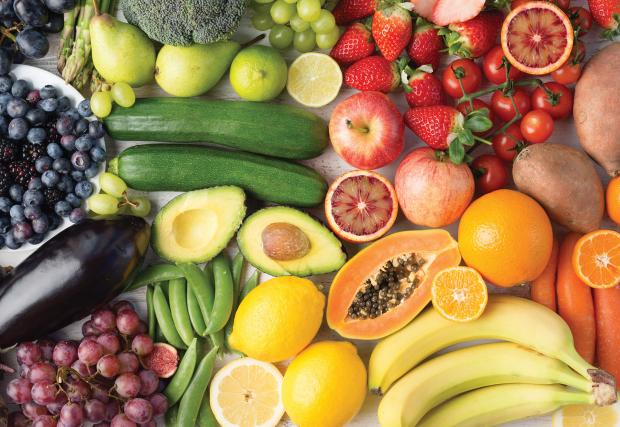Eating for Better Heart Health and Wellness
 March 8, 2021
March 8, 2021
Keeping tabs on your heart health means keeping track of your numbers for blood pressure, total cholesterol, blood sugar and BMI (body mass index). There’s another factor to keep in mind: chronic inflammation, and its possible impact on your heart and other organs.
What is chronic inflammation?
Unlike acute inflammation, which can help you heal from a wound or infection, chronic inflammation is an ongoing inflammatory response that can be harmful to your body and occur over years. For heart patients, chronic inflammation has been linked to an increase in atherosclerosis (the buildup of plaque) in the vessels, which can lead to possible heart attacks, strokes and other problems.
What if you don’t feel any symptoms?
Damage to your body can occur silently, putting you at risk of heart disease without you even realizing it. Knowing your numbers—and taking steps to reduce inflammation—can help you manage your risk and stay healthier.
What role does your diet play?
Along with factors like stress and exercise, diet can significantly impact your likelihood of having cardiovascular problems. Here are some tips to consider to help prevent inflammation and keep your health on track.
DO EAT ...
-
 Vegetables and fruits, especially red, blue and purple varieties, which are high in anthocyanin, a compound that can reduce inflammation. (e.g., blueberries, blackberries, purple potatoes). Tip: Consider frozen as a convenient, less-costly alternative to fresh.
Vegetables and fruits, especially red, blue and purple varieties, which are high in anthocyanin, a compound that can reduce inflammation. (e.g., blueberries, blackberries, purple potatoes). Tip: Consider frozen as a convenient, less-costly alternative to fresh. -
 Whole grains (e.g., oatmeal, brown rice, whole-wheat bread, whole-wheat pasta)
Whole grains (e.g., oatmeal, brown rice, whole-wheat bread, whole-wheat pasta) -
 Beans and legumes (e.g., black beans, chickpeas, lentils, pinto beans, red beans)
Beans and legumes (e.g., black beans, chickpeas, lentils, pinto beans, red beans) -
 Nuts (e.g., almonds, pecans, peanuts)
Nuts (e.g., almonds, pecans, peanuts) -
 Food sources for Omega-3 fatty acids (e.g., salmon, mackerel, herring, sardines, tuna; also walnuts, ground flax seeds, chia seeds)
Food sources for Omega-3 fatty acids (e.g., salmon, mackerel, herring, sardines, tuna; also walnuts, ground flax seeds, chia seeds)
AVOID ...
-
 Foods with trans fats (or hydrogenated oils), which may include certain bakery items, processed snacks, fried foods and others. Note: Food companies are removing trans fats from many products per the FDA, but trans fats are still out there.
Foods with trans fats (or hydrogenated oils), which may include certain bakery items, processed snacks, fried foods and others. Note: Food companies are removing trans fats from many products per the FDA, but trans fats are still out there. -
 Refined carbohydrates (e.g., white bread, white rice, refined cereals)
Refined carbohydrates (e.g., white bread, white rice, refined cereals) -
 Highly processed meats and meats with high saturated fat (e.g., salami, fatty cuts of beef)
Highly processed meats and meats with high saturated fat (e.g., salami, fatty cuts of beef) -
 Foods and drinks with added sugars (e.g., sugary sodas, fruit juices, desserts)
Foods and drinks with added sugars (e.g., sugary sodas, fruit juices, desserts) -
 Alcohol (avoid overconsumption)
Alcohol (avoid overconsumption)
Attention Cheese Lovers
While cheese can be a good source of calcium and protein, too much cheese is not good for your health. Talk with your doctor about how much you should eat. Also, consider reduced-fat or part-skim choices, and cheeses that tend to be lower in saturated fat, such as mozzarella and feta.
Reviewed by Anita Renwick, RD, LD, Clinical Dietitian, Spring Valley Hospital 2021
